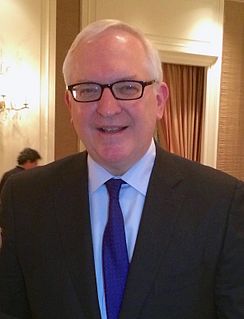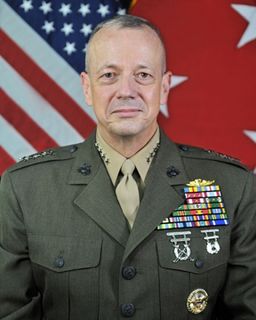A Quote by Michael Scheuer
In terms of Iraq, al Qaeda valued Iraq because we destroyed a government it wanted destroyed and because we put soldiers on the ground and forces that they could attack. Al Qaeda is basically an insurgent organization that was formed on the model of the Afghan groups. And being bred in that war, they value a contiguous safe haven as much as anything else.
Related Quotes
Certainly there’s a connection between Iraq and Al Qaeda. It doesn’t surprise me at all that they would be talking to Al Qaeda, that there would be some Al Qaeda there or that Saddam Hussein might even be, you know, discussing gee, I wonder since I don’t have any scuds and since the Americans are coming at me, I wonder if I could take advantage of Al Qaeda? How would I do it? Is it worth the risk? What could they do for me?
Some Pakistanis fought for the Taliban. Pakistani extremist groups provided infrastructural support to Al Qaeda. There was a coming and going of Al Qaeda militants and leaders between Afghanistan and Pakistan for several years. All that has really happened is that Al Qaeda has escaped from Afghanistan come into Pakistan, got in touch with their contacts and friends in these extremist groups, which then provided them with safe houses, cars, and not just in the border areas but also in the cities. Rooting out Al Qaeda in Pakistan now is where the main battle is being fought.
There are no barriers to entries. Think of this as Linux in terms of software. Anyone can have part of the operating system so long as you pledge allegiance to the ideas. Previously, if you wanted to join al Qaeda, you had to travel to an al Qaeda safe haven, probably in northern Pakistan or Afghanistan. Now all you have to do is get a gun, choose a target, and carry out an attack.
We have not destroyed al Qaeda, so we still have that to worry about. We have its traditional allies, the Kashmiri groups, the groups that are operating now in Iraq, and now we have a third tier of threat amongst the Muslims that live in the West and who are inspired to do something against the West by the example of the other two tiers.
More likely, there were probably some real divisions within the Iranian government - some groups wanted to ally with al Qaeda against us, others didn't want to have anything to do with that. So I think that debate resulted in no decision being made for awhile. The problem was they left the al-Qaeda folks in Iran in the hands of their intelligence services and Revolutionary Guard, who didn't really keep an eye on them - and may not have kept an eye on them on purpose.
In my head, thought, I would love to do an interview where it's just sort of de-constructed - the talking points of Iraq - sort of the idea of, is this really the conversation we're having about this war? That if we don't defeat Al Qaeda in Iraq, they'll follow us home? That to support the troops means not to question that the surge could work. That, what we're really seeing in Iraq is not a terrible war, but in fact, just the media's portrayal of it.


































